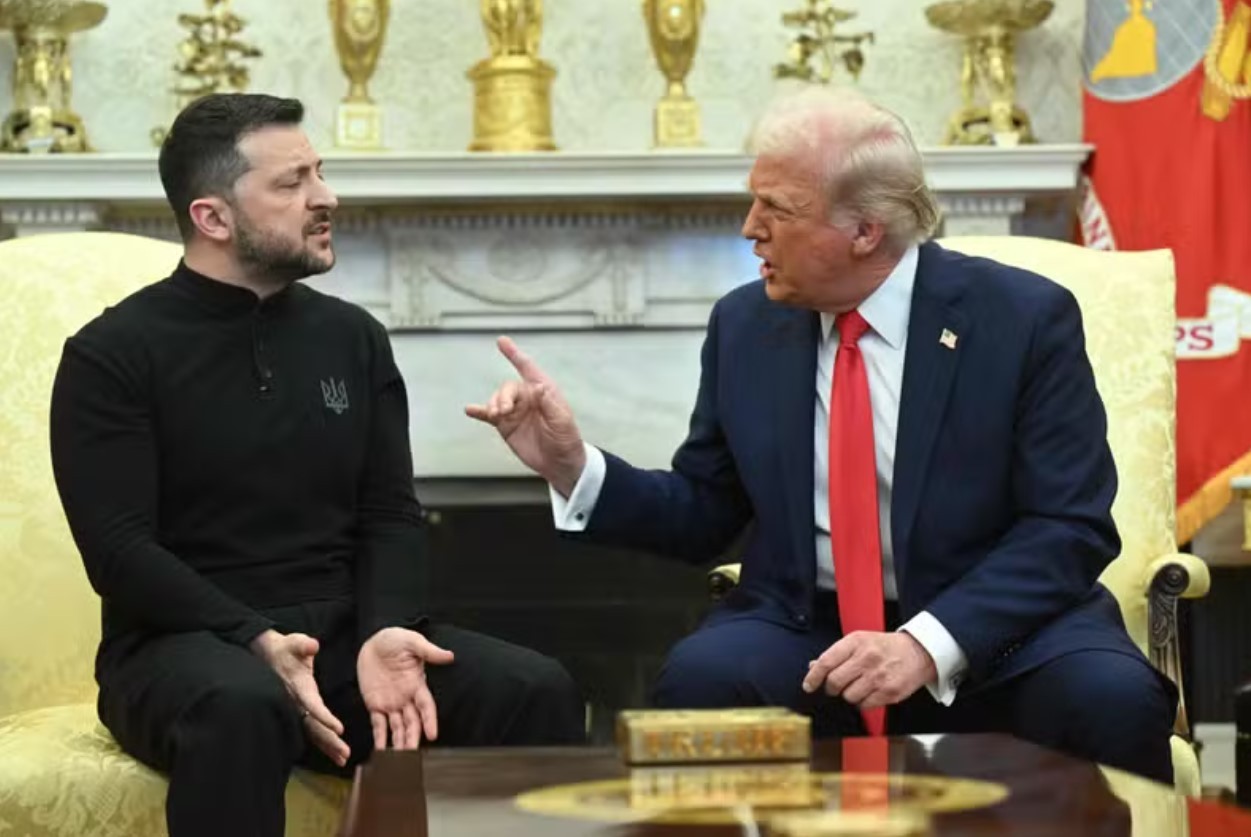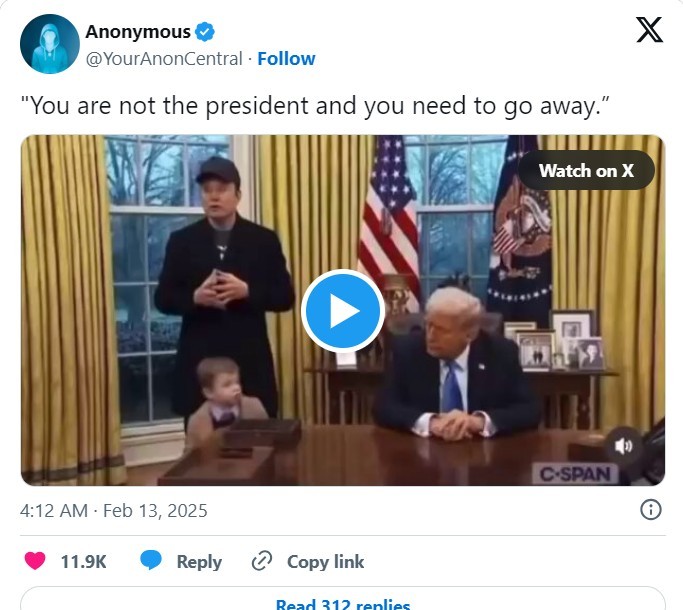FACTS about Trump’s 'Patriot Party': What it means, Website us-patriotparty.com, Third Parties in US History
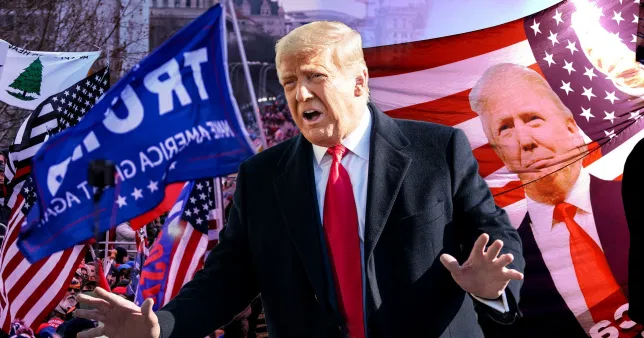 |
| Ex-President Donald Trump. |
The ex-president considered calling the third party “Patriot Party,” according to a Wall Street Journal report citing several aides and others close to Trump. The White House declined to comment.
Trump floated the idea in the last days of his presidency following his impeachment over the Jan. 6 riot, according to the Wall Street Journal. He raised the notion amid his anger at several Republicans who criticized him for his role in the violence on Capitol Hill, which left five people dead.
A new party would face a steep uphill climb in the United States’ two-party system, but it would also create a major headache for the Republican Party. The GOP is divided over how to deal with Trump’s impeachment and how to move forward — either with or without him — for the next presidential election in 2024. It’s also grappling with a major loss of power, with Democrats now holding control of the House, Senate and presidency.
What would an Trump 'Patriot Party' look like?
“The movement we started is only just beginning," President Trump siad Tuesday.
At an event in Florida Wednesday, supporters voiced approval.
“The GOP is dead. If the new patriots party came out I would wholeheartedly jump on that train," a Trump supporter named Isabella told CBS 12 news.
" If he does he’ll take 74 million voters, they’ll all follow him," said Billy Cayce, another Trump Supporter, to News3lv.com.
A Patriot Party website (https://us-patriotparty.com) is already up and running, “The goal of the Patriot Party National Committee is to restore constitutional conservative leadership by raising up politicians who will represent We The People with renewed morals, ethics and core constitutional principles. This is a movement for conservatives that have been left in the cold by the establishment GOP, " the website says.
Some members of that establishment GOP have mostly stood by Trump during his presidency, but following the insurrection at the U.S. Capitol, a few changed their tune.
“A new party of his might end up dismantling the Republican Party because while his base may be a minority of the American public, it’s a majority of the present Republican Party," Jim Nowlan, a former legislator and politics professor. He wrote in the Chicago Tribune the day after the election entitled, "Election reveals there is space for a third political party."
“Patriot Party” term
Some pointed out that there had been a socialist, anti-facist organization of a similar name in the 1960s in Appalachia. They savored the apparent irony.
Others thought any new party formed by the ex-president — as he no doubt faces an impeachment trial and/or criminal court proceedings related to his one-term administration — would bear his own name. The Trump Party.
For years, the "Patriot" term has been focused by the extreme right and the pro-Trump groups as a rallying moniker. They also use "1776" to recall feelings of revolution and righteousness.
The American Defense League describe the use of the "Patriot" term this way: "A collective term used to describe a set of related extremist movements and groups in the United States whose ideologies center on anti-government conspiracy theories. The most important segments of the 'Patriot' movement include the militia movement, the sovereign citizen movement and the tax protest movement."
Third parties have typically failed to draw enough support to play a major role in national elections. Any effort to start a new party would likely face intense opposition from Republican party officials, who would chafe at the thought of Mr. Trump peeling off support from GOP candidates.
Desert News wrote about the term on Jan. 13, a week before the inauguration and a week after the deadly invasion of the U.S. Capitol after Trump whipped a crowd into some sort of undefined action involving Congress.
Social media widely reflected use of the Patriot term by right-wing groups.
On the same spinning set of January news cycles, Trump also wanted to give the Presidential Medal of Freedom to the coach of the New England Patriots.
According to Abcnews4, the party - Patriot Party has around 40 leaders nationwide and is still in the early stages of organizing. The Arizona party garnered approximately 7,000 signatures through its website, as part of the process for earning a spot on the state ballot. Mindy Robinson, who lost her 2020 Republican primary bid for Nevada’s third congressional district, plans to run as a Patriot Party candidate in 2022, Johnson said.
Johnson doesn't think the party will be nationally recognized until 2024 — if the state campaigns are successful.
Party organizers have received blowback for their efforts, suggesting they'd siphon off too many Republicans and would damage right-wing candidates' chances at winning elections.
Search traffic for the Patriot Party shot upSearch traffic for the Patriot Party shot up in recent days, following the Wall Street Journal’s report that Trump has discussed starting a new "Patriot Party. |
Third party throughout the US history
As Business Insider points out, starting a separate American political party is a daunting task. Despite an active political presence, only two parties — the Democrats and Republicans — dominate the modern American political process, between them fielding all of the candidates that have become president since the mid-1800s.
The Anti-Masonic Party (established 1828) became America’s first third party by riding the tide of anti-Masonic sentiment following the 1826 disappearance of Freemason whistleblower William Morgan. For the 1832 election, the Anti-Masons selected William Wirt in the first presidential nominating convention in United States history.
The Free Soil Party (established 1848) was created through a union of anti-slavery factions from the two major parties, the Barnburner Democrats and Conscience Whigs. Its platform, unlike that of James G. Birney’s earlier Liberty Party (established 1840), did not aim to abolish slavery, but rather to cease its expansion. As a result, Free Soilers backed the Wilmot Proviso and opposed the Democratic Party on using popular sovereignty to decide slavery’s status. In its first year, 1848, the party ended up with two senators and 14 Representatives in Congress. Free Soil presidential candidate Martin van Buren managed to capture 10% of the popular vote, and his influence may have secured Whig candidate Zachary Taylor’s close victory over Democrat Lewis Cass.
Former President Millard Fillmore in 1856 carried the presidential standards of the American and Know Nothing Parties, both of them taking hard-line stands against immigrants. Fillmore placed a distant third behind winning Democrat James Buchanan and first-time Republican nominee John C. Fremont. He carried only the electoral votes of Maryland.
Easily the most famous third party movement led by a former president was the Progressive Party — or "the Bull Moose Party," as its candidate Theodore Roosevelt nicknamed it upon accepting its nomination in 1912 and declaring he was "fit as a bull moose."
| Denied the Republican presidential nomination in favor of incumbent President William Howard Taft, T.R. went on to actually come in second in the fall contest ahead of Taft but behind Democrat and winner Woodrow Wilson. The Progressives fared badly in the 1914 midterm elections and Roosevelt told a friend it was time "to go back to the Republican Party You cannot hold a party like the Progressive Party together. There are no loaves and fishes [a reference to the miracle described in the gospels]." |
In 1968, George Wallace, the far-right segregationist governor of Alabama, won five states while running as the nominee of the American Independent Party. No third-party candidate has won a statewide federal election since, although a number of independents have been elected to Congress.
The Reform Party (established 1995) was created to follow up on Ross Perot’s 1992 independent campaign for President, in which he won 19% of the popular vote but no electoral votes, making him the most successful alternative candidate by vote count since Theodore Roosevelt in 1912.
The Green Party (established 1991) never attracted as large of a share of the vote as the other third parties, but the ticket of Ralph Nader and Winona LaDuke pulled 2.7% of the popular vote in the infamous 2000 presidential election, possibly influencing Republican George W. Bush’s extremely narrow victory over Democrat Al Gore, the winner of the popular vote. The Green Party continues to nominate candidates for presidential elections, and cites ecological sustainability, social justice, and fair democracy among its goals.
In New York, the state-based Liberal Party and Conservative Party act as ideological checks on Democrats and Republicans respectively, generally cross-endorsing their candidates when they are found acceptable, but occasionally running alternative candidates when they deem the mainstream parties’ nominees too moderate or compromising. James Buckley served a Senate term from 1971 to 1977 as a Conservative from New York after defeating both a Republican and Democrat in the 1970 election.
Third Parties Success & Influence
The most successful of the third parties in any one election was the Reform Party, which in 1992 nominated Texas billionaire Ross Perot as its candidate for president. Perot ran on a platform that advocated reducing the federal budget deficit, an issue previously ignored in elections but one that would become a major part of almost every presidential campaign since. Perot received 19 percent of the vote.
Third parties have had a major influence on U.S. policy and political debate despite their minor presence in Congress — currently only one U.S. senator and one member of the House of Representatives is an independent.
In the late 1800s and early 1900s, the Socialists popularized the women’s suffrage movement. They advocated for child labor laws in 1904 and, along with the Populist Party, introduced the notion of a 40-hour work week, which led to the Fair Labor Standards Act of 1938.
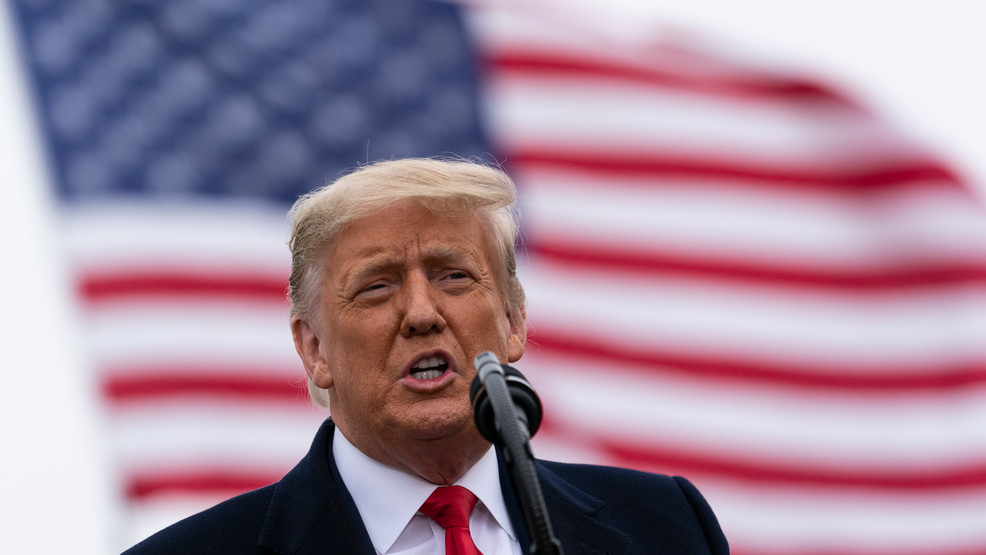 Full text of President Trump’s Memorandum on Classification of FBI’s Crossfire Hurricane Material Full text of President Trump’s Memorandum on Classification of FBI’s Crossfire Hurricane Material In his last day serving as the President of the US, Donald Trump announced to declassify certain materials relating to the FBI’s Crossfire Hurricane investigation. ... |
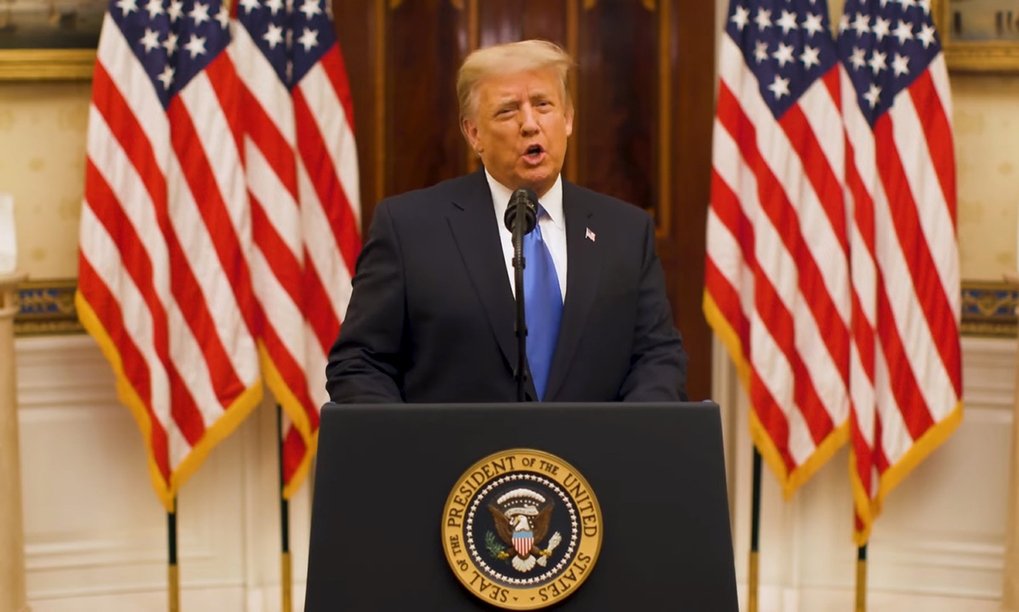 Read the complete text of President Trump’s Farewell Address - and Video Read the complete text of President Trump’s Farewell Address - and Video In his farewell video to the nation last Tuesday, US President Donald Trump urged Americans to "rise above the partisan rancor", praising the achievements during ... |
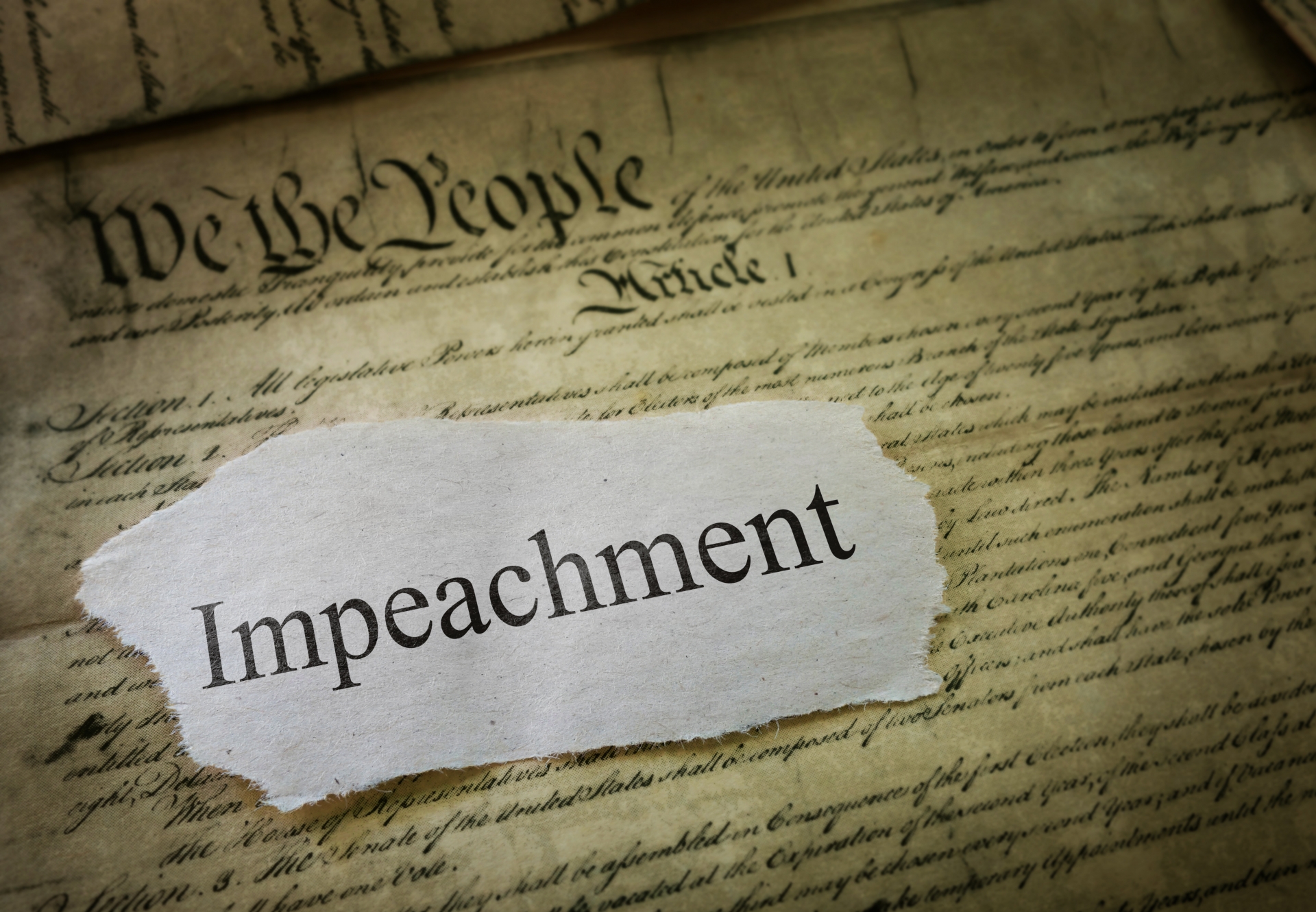 US President Impeachment: How many presidents impeached, How it works? US President Impeachment: How many presidents impeached, How it works? Throughout America’s history, there were three presidents impeached and a president resigned to avoid certain removal due to a scandal. The article will provide you ... |
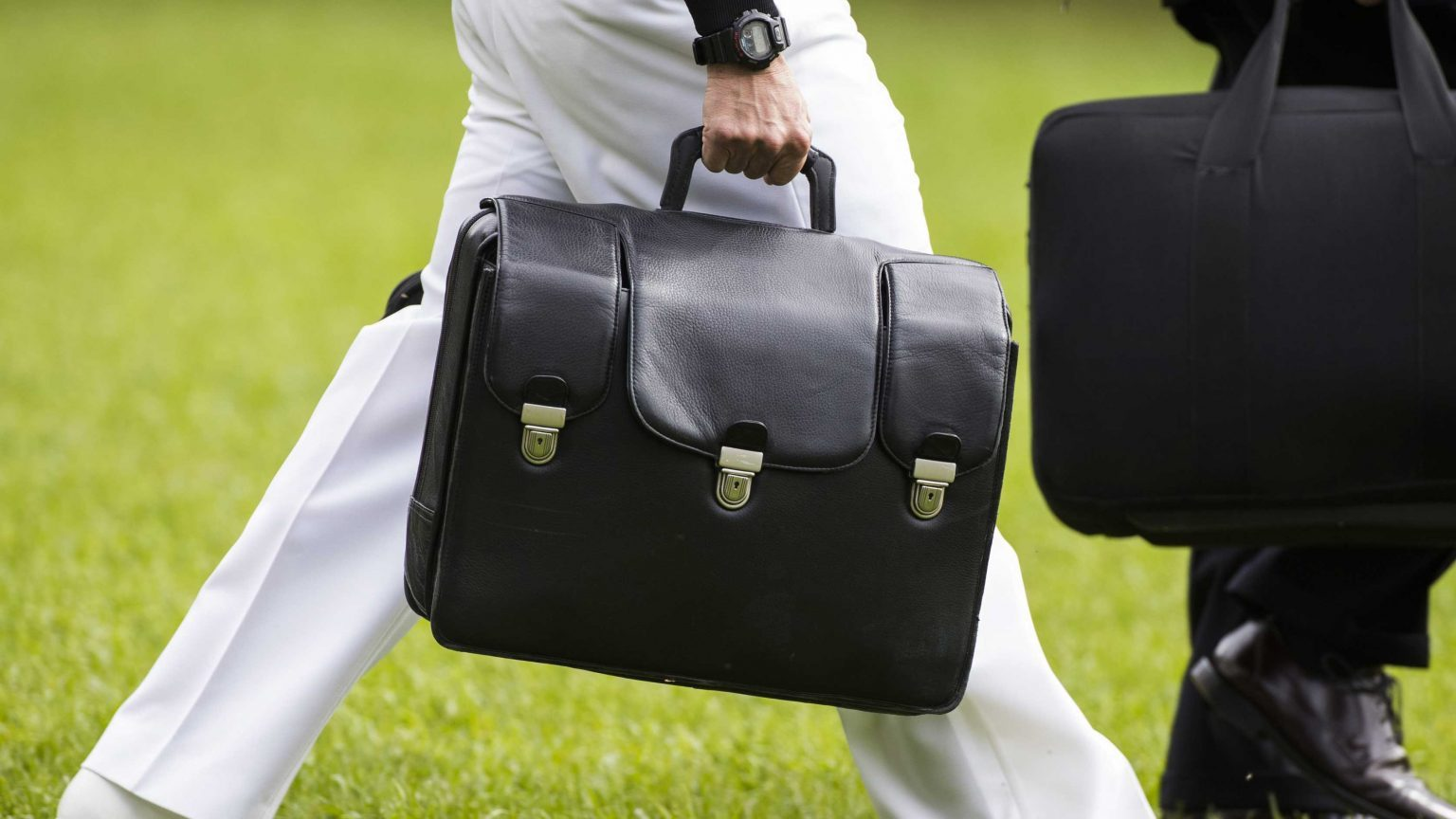 Facts about 'Nuclear Football' Briefcase of the U.S President: History, What’s inside, Red Button and Everything to Know Facts about 'Nuclear Football' Briefcase of the U.S President: History, What’s inside, Red Button and Everything to Know Nuclear Football, the powerful and mysterious briefcase that always follows the U.S President everywhere can be able to launch a nuclear attack. So, what is ... |


